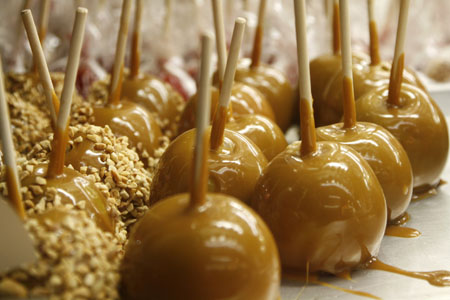For some it’s a classic autumn treat, an apple dipped in caramel, now researchers say if it’s not refrigerated it could pose a threat for Listeria.

The issue is once the apple is punctured with a dipping stick, the authors said, that apple juices can get stuck under a layer of caramel and that combination was much more likely to facilitate growth of the potentially deadly bacteria.
READ MORE: Caramel apples linked to Listeria outbreak in U.S. may have reached Canada
The study was prompted after a 2014 Listeria outbreak that saw 35 people infected and at least three people dead in the United States. In Canada there was one confirmed case. According to the Centers for Disease Control and Prevention (CDC), the Listeria outbreak was traced back to caramel-dipped apples.
“The outbreak took producers, public health officials, and food safety experts by surprise: caramel-coated apples are not a food on which Listeria monocytogenes should grow,” the study stated.
So researchers from the University of Wisconsin-Madison’s Food Research Institute decided to try and figure out how and why it happened. Researchers chose four of the Listeria strains involved in the outbreak and coated them on Granny Smith apples, dipped them in caramel and stored them at either room temperature or in the refrigerator. The authors concluded when apples were left unrefrigerated, Listeria growth happened more quickly.
The average population of Listeria monocytogenes increased 1,000-fold on caramel apples with sticks stored at room temperature for three days. The results were published in mBio, an online journal of the American Society for Microbiology.
“But because caramel-dipped apples are typically set out at room temperature for multiple days, maybe up to two weeks, it is enough time for the bacteria to grow,” said Glass.




Comments